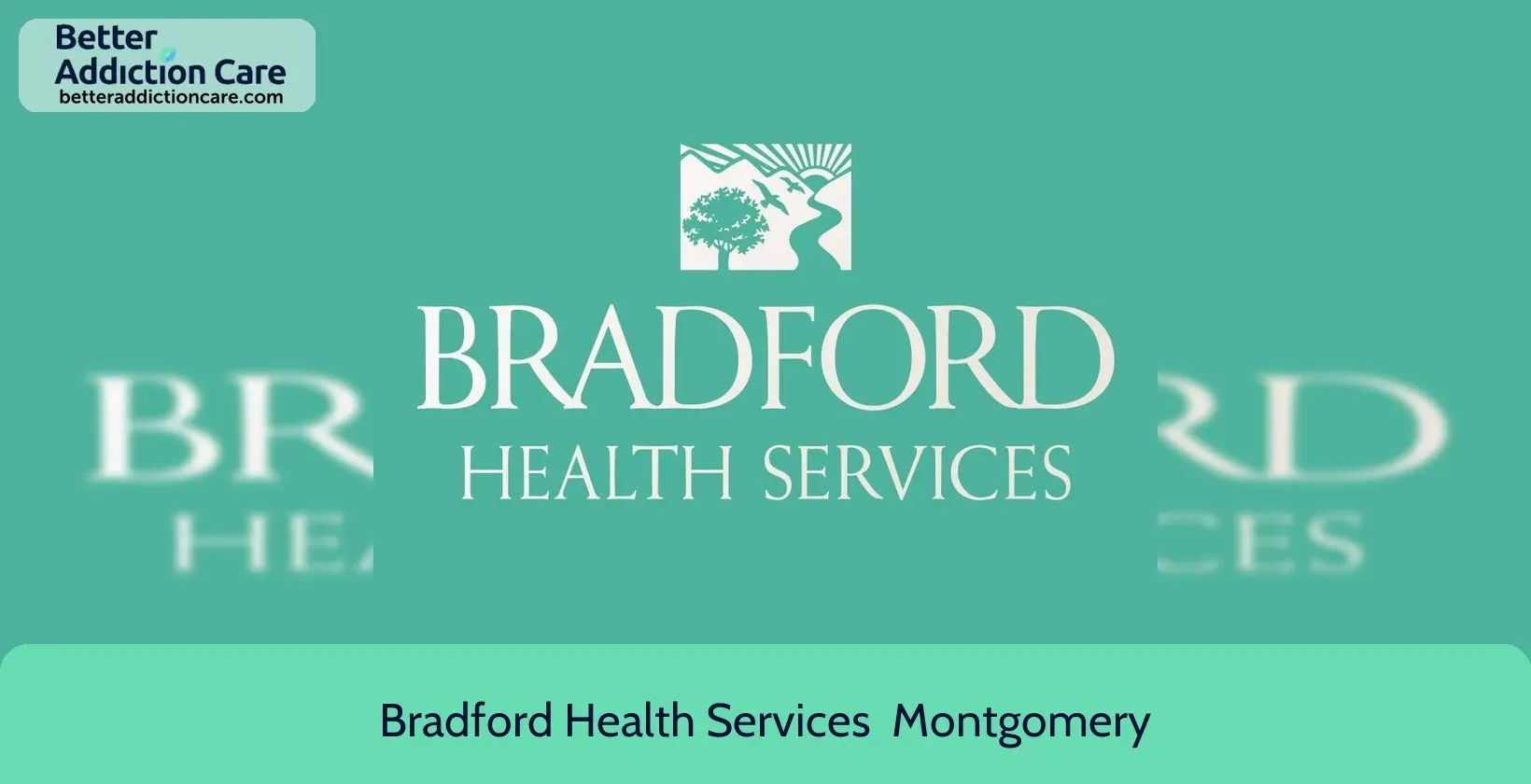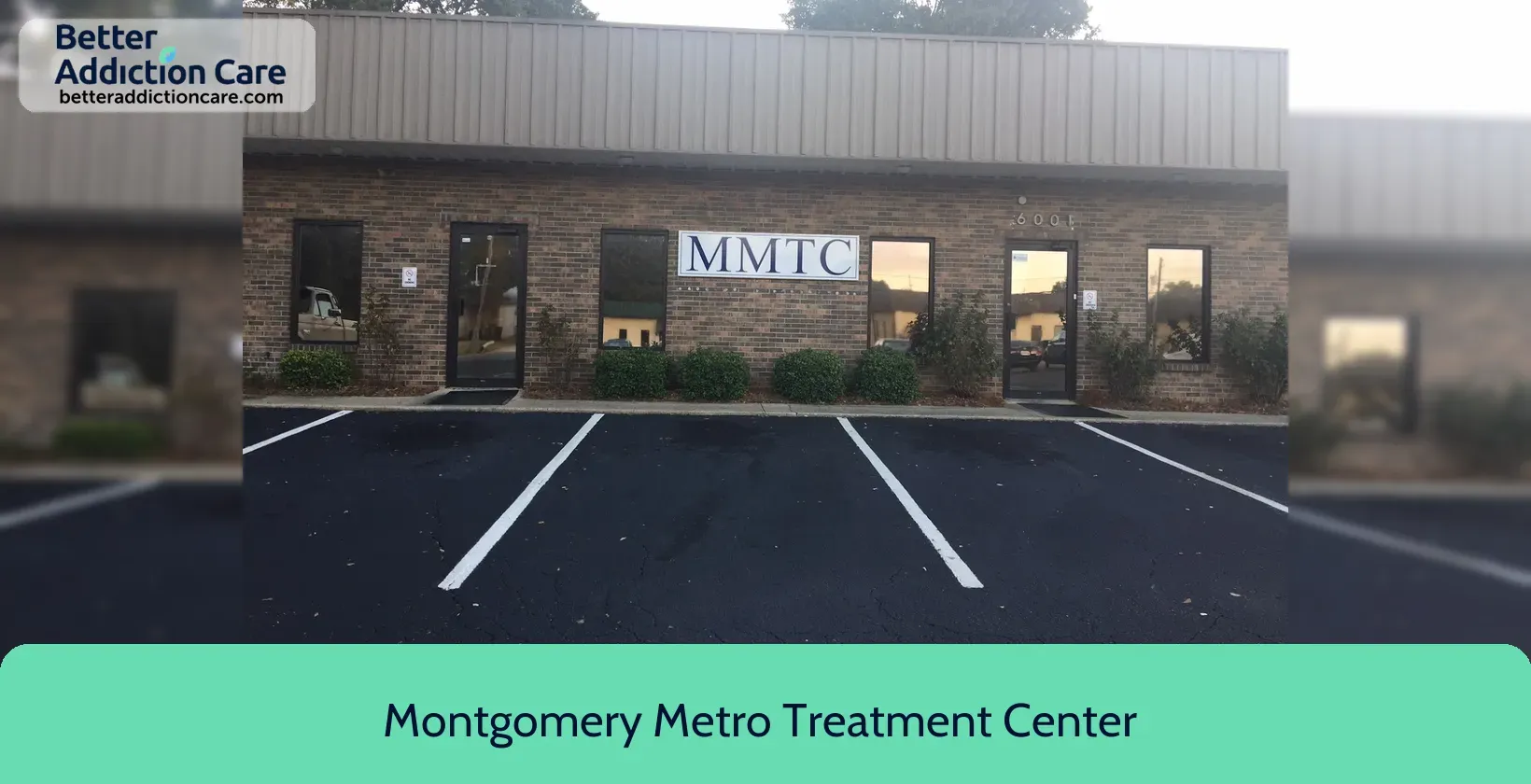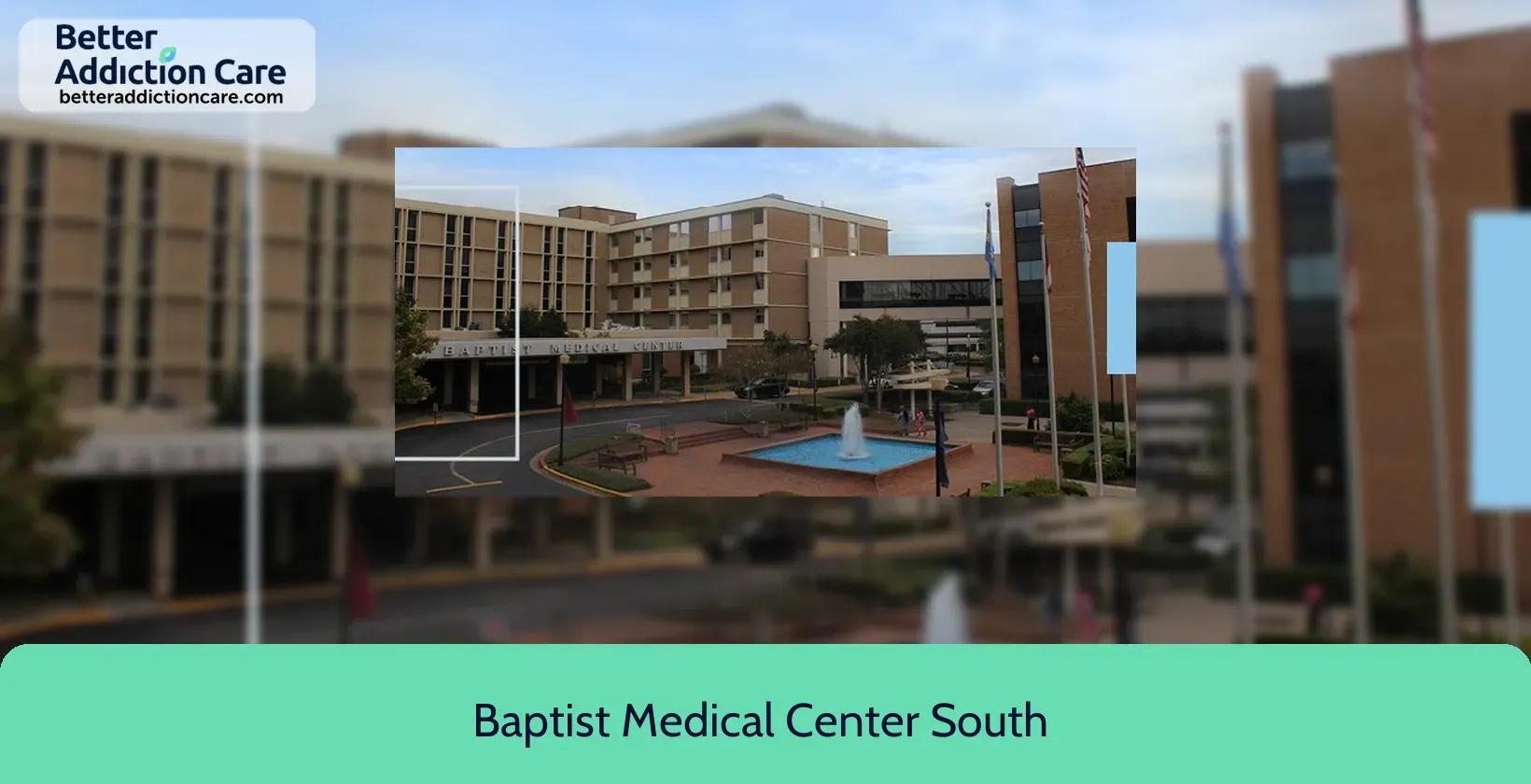Reclamation Center of Alabama
Overview
Reclamation Center of Alabama is a substance abuse treatment center for people seeking treatment near Montgomery County. As part of their treatment modalities for recovery, Reclamation Center of Alabama provides cognitive behavioral therapy, telemedicine/telehealth therapy, and substance use disorder counseling during treatment. Reclamation Center of Alabama is located in Montgomery, Alabama, accepting cash or self-payment for treatment.
Reclamation Center of Alabama at a Glance
Payment Options
- Cash or self-payment
- Medicaid
- Medicare
- State-financed health insurance plan other than Medicaid
- Private health insurance
Assessments
- Comprehensive mental health assessment
- Comprehensive substance use assessment
- Interim services for clients
- Outreach to persons in the community
- Screening for mental disorders
Age Groups
- Seniors or older adults
- Adolescents
- Young adults
- Children/adolescents
- Adults
Ancillary Services
- Case management service
- Integrated primary care services
- Specially designed program for DUI/DWI clients
- Domestic violence services, including family or partner
- Social skills development
Highlights About Reclamation Center of Alabama
6.89/10
With an overall rating of 6.89/10, this facility has following balanced range of services. Alcohol Rehabilitation: 8.00/10, Drug Rehab and Detox: 6.00/10, Insurance and Payments: 6.00/10, Treatment Options: 7.58/10.-
Alcohol Rehabilitation 8.00
-
Treatment Options 7.58
-
Drug Rehab and Detox 6.00
-
Insurance and Payments 6.00
Accreditations
State mental health department:
State mental health department accreditation refers to the process of evaluating and certifying the quality and standards of a state's mental health department, ensuring that it provides high-quality services and meets specific criteria for mental health care. The accreditation process is performed by a third-party organization and helps to improve the overall care and treatment of individuals with mental health conditions.
Treatment At Reclamation Center of Alabama
Treatment Conditions
- Alcoholism
- Substance use treatment
Care Levels
- Outpatient
- Regular outpatient treatment
- Aftercare
Treatment Modalities
- Cognitive behavioral therapy
- Telemedicine/telehealth therapy
- Substance use disorder counseling
- Trauma-related counseling
- Treatment for gambling disorder
Ancillary Services
Languages
- Sign language services for the deaf and hard of hearing
Additional Services
- Pharmacotherapies administered during treatment
- Mentoring/peer support
- Drug or alcohol urine screening
Special Programs
- Clients with co-occurring mental and substance use disorders
- Veterans
- Active duty military
- Members of military families
- Criminal justice (other than DUI/DWI)/Forensic clients
Get Help Now
Common Questions About Reclamation Center of Alabama
Contact Information
Other Facilities in Montgomery

6.62

6.62

6.82

6.91

7.45

7.56

6.72
Browse rehab centers near Montgomery and in other cities across Alabama
DISCLAIMER: The facility name, logo and brand are the property and registered trademarks of Baptist Medical Center South - Crossbridge Behavioral Health, and are being used for identification and informational purposes only. Use of these names, logos and brands shall not imply endorsement. BetterAddictionCare.com is not affiliated with or sponsored by Baptist Medical Center South - Crossbridge Behavioral Health.
